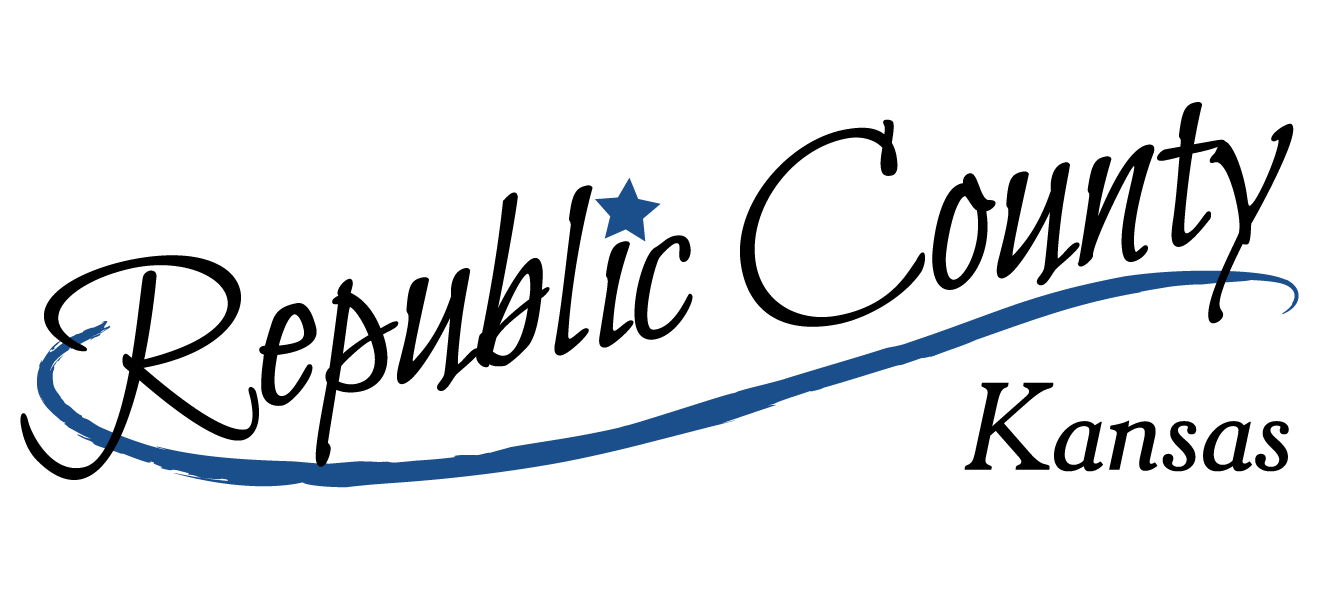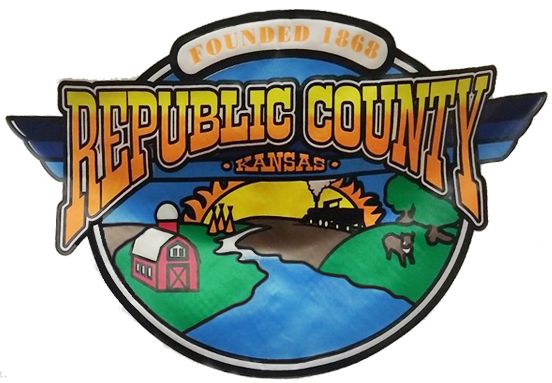
January 1 is the assessment date (KSA 79-1455)
March 1, County appraiser notifies taxpayers of value and classification of real property (KSA 79-1460)
Personal Property is defined as, "That property which is not a part of or a fixture to land or improvements in that it can be moved without damage to itself or the real property."
Every person or business who owns or holds tangible personal property shall list said property for assessment. Kansas Statutes state that the filing deadline is March 15 of each year. Assessment sheets are mailed, as a courtesy, each January to owners who currently list items of personl property. Be sure and contact our office immediately if you do not receive an assessment sheet and feel you should have. Our phone number for Personal Property questions is (785) 527-7229.
Items that should be reported are:
- Trucks and pickups tagged 16,000 pounds or more.
- Cars, trucks, pickups and motorcycles with expired tags.
- Mopeds, 3 & 4 - wheelers, snowmobiles, golf carts & dune buggies.
- Travel trailers, camping trailers & fifth-wheelers that are NOT SELF-CONTAINED.
- Manufactured homes that are not considered Real Property.
- Boats, boat motors, boat trailers and boat cradles.
- Construction equipment.
- Aircraft.
- Pulling tractors & race cars.
- Business machinery & equipment
First time filers, especially businesses, are encouraged to contact our office for assistance. This can save both the property owner and the county time. You can use the Personal Property Assessment Form(PDF) and print a rendition that may be completed and placed in the mail.
Renditions must be returned by March 15 to avoid penalties. Penalties for late filing are required per Kansas Statutes Annotated (K.S.A. 79-1422) as follows:
March 16 - April 15
5% Personal Property penalty
April 16 - May 15
10% Personal Property penalty
May 16 - June 15
15% Personal Property penalty
June 16 - July 15
20% Personal Property penalty
July 16 and thereafter
25% Personal Property penalty
Failure to file
50% Personal Property penalty
Article II, Section I of The Kansas Constitution provides that: Tangible personal property shall be classified into six subclasses and assessed uniformly by subclass at the following assessment percentages.
- Manufactured homes used for residential purposes.--------- 11.5 %. *
- Mineral leasehold interests except oil leasehold interests the average daily production from which is five barrels or less, and natural gas leasehold interests the average daily production from which is 100 mcf or less, which shall be assessed at ---- 25% otherwise 30%.
- Public utility tangible personal property including inventories thereof, except railroad personal property, including inventories thereof, which shall be assessed at the average rate all other commercial and industrial property is assessed ----- 33%.
- All categories of motor vehicles not defined and specifically valued and taxed by the tag and tax system---- 30%.
- Commercial and industrial machinery and equipment which, if its economic life is seven years or more, shall be valued at its retail cost when new less seven-year straight-line depreciation, or which, if its economic life is less than seven years, shall be valued at its retail cost when new less straight-line depreciation over its economic life, except that, the value so obtained for such property, notwithstanding its economic life and, as long as such property is being used, shall not be less than 20% of the retail cost when new of such property, otherwise ---------- 25%.
- Watercraft -------- 5%
- All other tangible personal property not otherwise specifically classified is assessed at --- 30%.
* The same as manufactured homes considered as real property.
All values are market value, as certified to the County Clerk by June 15th, with the exception of agricultural land and personal property. Totals do not include state assessed utility property.
The Appraiser's Office has a wealth of information about real property and real property market activity in the county. All of this information is required for appraisers to do their jobs efficiently and effectively. At the same time, it can be a useful tool for a variety of other purposes and individuals both within and outside of the county appraiser's office.
All the information in the County Appraiser's Office is open to the public but for a few exceptions. One exception is that sales questionnaire information, according to Kansas law, is only available to the following people as specified in K.S.A. 79-1437f:
Effective July 1, 2006, licensed real estate brokers and realtors will be allowed access to real estate sales validation questionnaires (PDF).
(a) County officials for cooperating with and assisting the director of property valuation in developing the information as provided for in K.S.A. 79-1487, and amendments thereto;
(b) any property owner, or the owner's representative, for prosecuting an appeal of the valuation of such owner's property or for determining whether to make such an appeal, but access shall be limited to the contents of those questionnaires concerning the same constitutionally prescribed subclass of property as that of such owner's property;
(c) the county appraiser and appraisers employed by the county for the appraisal of property located within the county;
(d) appraisers licensed or certified pursuant to K.S.A. 58-4101 et seq., and amendments thereto, for appraisal of property and preparation of appraisal reports;
(e) financial institutions for conducting appraisals and evaluations as required by federal and state regulators;
(f) the county appraiser or the appraiser's designee, hearing officers or panels appointed pursuant to K.S.A. 79-1602 or 79-1611, and amendments thereto, and the state board of tax appeals for conducting valuation appeal proceedings;
(g) the board of county commissioners for conducting any of the board's statutorily prescribed duties; and
(h) the director of property valuation for conducting any of the director's statutorily prescribed duties.
A second exception is income and expense information that is provided by commercial property owners in the county. This information is used by county personnel to develop income models, but is not open to public inspection.
The types of public information that is available in the appraiser's office include: aerial photography and parcel identification maps; property characteristics, such as building size, age, style, etc.; property owner's names and addresses; property situs addresses; valuation history; agricultural land use and soil type; and personal property records and guides, etc.
The above information is stored in the county's computer system and , in most cases, in paper form. The real property records are filed by parcel identification number. A record can be located by using either the owner's name, address or parcel identification number. Personal property records are filed by owner's name.
Taxpayers can get a copy of their records at no charge. A fee is charged if taxpayers request copies of parcels or other information about properties they do not own. Copies of most records can be provided the day they are requested. However, requests that require research, a large amount of copying, or are on computer or in storage will be available within three working days of the request.


